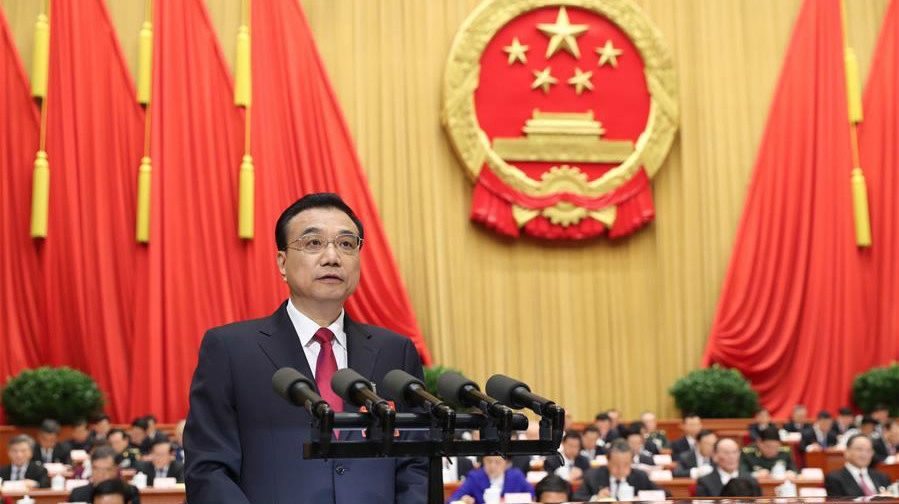
Politics
09:00, 05-Mar-2017
Highlights: Chinese Premier Li Keqiang delivers annual gov’t work report
Updated
10:57, 28-Jun-2018

The 5th session of the 12th National People's Congress kicked off at the Great Hall of the People on Sunday in Beijing. Ten days of policy discussions and planning will follow, setting the tone and goals for 2017.
China’s Premier Li Keqiang delivered the Report on the Work of the Government to lawmakers during the opening meeting, reviewing the accomplishments of 2016 and pointing the way for the year ahead.
Here are some highlights:
A review of work in 2016:
The economy registered slower but stable performance with good momentum for growth. GDP reached 74.4 trillion yuan, representing 6.7-percent growth, and seeing China outpace most other economies. China has contributed more than 30 percent of global growth. The CPI rose by 2 percent.
The trial replacement of a business tax with a value-added tax (VAT) was extended to cover 570 billion yuan, reducing tax burdens in all sectors. More local government bonds were issued to replace outstanding debts, reducing interest payments by roughly 400 billion yuan.
Particular priority was given to cutting overcapacity in the steel and coal sectors. Over the year, steel production capacity was cut by more than 65 million metric tons and coal by over 290 million metric tons, going beyond annual targets.

Xinhua Photo
Xinhua Photo
Major areas of focus for 2017:
China has set the following key targets for development this year: GDP growth of around 6.5 percent, or higher if possible in practice; increase of CPI kept at around 3 percent; over 11 million new urban jobs; registered urban unemployment rate within 4.5 percent.
China will further reduce steel production capacity by around 50 million metric tons and shut down at least 150 million metric tons of coal production. At the same time, China will suspend or eliminate no less than 50 million kilowatts of coal-fired power generation capacity, to guard against overcapacity in coal-fired power, improve the efficiency of this sector, and make room for clean energy to develop.
More small businesses with low profits will see their corporate income taxes halved, with the upper limit of taxable annual income raised from 300,000 to 500,000 yuan. For small and medium high-tech enterprises, the proportion of R&D expenses that is tax deductible will be raised from 50 to 75 percent.
China will further reduce the number of rural residents living in poverty by over 10 million, including 3.4 million to be relocated from inhospitable areas. Central government funding for poverty alleviation will be increased by over 30 percent.
More efforts will be made to strengthen maritime and air defense, as well as border controls, as part of efforts to safeguard sovereignty and security.
The notion of Hong Kong independence will lead nowhere as China pledges to fully implement the principle of “one country, two systems”.
Integrated economic and social development will continue between the two sides of the Straits. China will resolutely oppose and contain separatist activities for Taiwan independence.
The annual session of China’s top legislature has been held in Beijing from March 5 to 15, 2017.
1km

SITEMAP
Copyright © 2018 CGTN. Beijing ICP prepared NO.16065310-3
Copyright © 2018 CGTN. Beijing ICP prepared NO.16065310-3